Fleurs du Mal Magazine


À l’occasion de la sortie de son album Pauvre chanson, au titre éponyme, Marie Modiano mêle pour la première fois chansons et poèmes dans un même recueil.
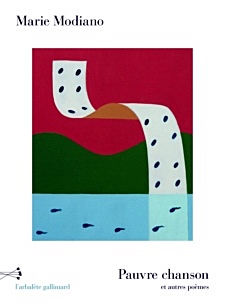
Autour des dix chansons interprétées sur ce nouveau disque, elle a écrit une quarantaine de ballades, petites proses, poèmes en vers libres ou comptés.
Y surgissent ses personnages, réels ou imaginaires : aventuriers, poètes, fous, amoureux, femmes perdues… habitants de paysages sans cesse recomposés.
Marie Modiano
Pauvre chanson et autres poèmes
Collection L’arbalète/Gallimard, Gallimard
Parution : 01-02-2018
Genre : Poésie
Littérature française
Époque : XXIe siècle
Prix : €12,50
128 pages
140 x 190 mm
ISBN : 9782072768156
Gencode : 9782072768156
Code distributeur : G01436
new poetry
fleursdumal.nl magazine
More in: #Editors Choice Archiv, - Book News, Archive M-N, Art & Literature News
Hannah Sullivan‘s debut collection is a revelation – three long poems of fresh ambition, intensity and substance.
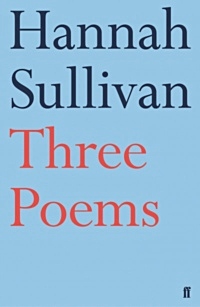 Though each poem stands apart, their inventive and looping encounters make for a compelling unity. ‘You, Very Young in New York’ captures a great American city, in all its alluring detail.
Though each poem stands apart, their inventive and looping encounters make for a compelling unity. ‘You, Very Young in New York’ captures a great American city, in all its alluring detail.
It is a wry and tender study of romantic possibility, disappointment, and the obduracy of innocence. ‘Repeat until Time’ begins with a move to California and unfolds into an essay on repetition and returning home, at once personal and philosophical. ‘The Sandpit after Rain’ explores the birth of a child and the loss of a father with exacting clarity.
In Three Poems, readers will experience Sullivan’s work with the same exhilaration as they might the great modernising poems of Eliot and Pound, but with the unique perspective of a brilliant new female voice.
Hannah Sullivan lives in London with her husband and two sons and is an Associate Professor of English at New College, Oxford. She received her PhD from Harvard in 2008 and taught in California for four years. Her study of modernist writing, The Work of Revision, was published in 2013 and awarded the Rose Mary Crawshay Prize by the British Academy.
Hannah Sullivan
Three Poems
Faber Poetry
Publisher: Faber & Faber
Paperback
18 Jan 2018
80 pages
Language: English
ISBN-10: 0571337678
ISBN-13: 978-0571337675
new poetry
fleursdumal.nl magazine
More in: - Book News, - Bookstores, Archive S-T, Art & Literature News
 Paris Photo is the largest international art fair dedicated to the photographic medium and is held each November at the historic Grand Palais in Paris. Since 1997, the Fair’s mission is to promote and nurture photographic creation and the galleries, publishers and artists at its source.
Paris Photo is the largest international art fair dedicated to the photographic medium and is held each November at the historic Grand Palais in Paris. Since 1997, the Fair’s mission is to promote and nurture photographic creation and the galleries, publishers and artists at its source.
Paris Photo brings together up to 200 exhibitors from across the world, offering collectors and enthusiasts the most diverse and qualitative presentation of photography-driven projects today.
Leading galleries showcase historical and contemporary artworks from modern masters to young talents. Specialized publishers and art book dealers present unique and rare editions, as well as book launches and signature sessions with many of today’s most renowned artists.
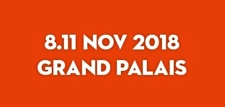 Paris Photo also provides visitors with first-hand insights and access to the art world. Programming includes curated exhibitions with renowned public and private institutions, awards, conversation cycles with curators, artists, collectors, and critics, and special events exploring the unique history of the medium; varying visions, practices and emerging trends.
Paris Photo also provides visitors with first-hand insights and access to the art world. Programming includes curated exhibitions with renowned public and private institutions, awards, conversation cycles with curators, artists, collectors, and critics, and special events exploring the unique history of the medium; varying visions, practices and emerging trends.
In addition, the Fair’s “In Paris during Paris Photo” programme reunites a dense network of cultural institutions throughout Paris comprising some of the most historically rich photographic collections in the world.
The 22nd edition of Paris Photo will take place Thursday, November 8 through Sunday, November 11 with a preview day on Wednesday, November 7 (by invitation only).
Grand Palais
Avenue Winston Churchill
75008 Paris
# more info on website Paris Photo 2018
fleursdumal.nl magazine
More in: Art & Literature News, FDM Art Gallery, FDM in Paris, Photography
Aanstaande woensdag, 7 november, geeft schrijver Ton van Reen een lezing in de jaarlijkse lezingencyclus van het Dr. Winand Roukens Fonds, aan de Universiteit van Maastricht.
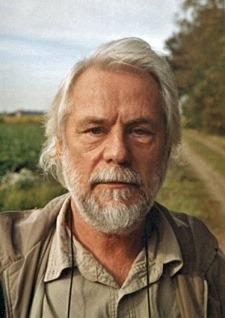 De lezing vindt plaats in de Karl Dittrichzaal van de Universiteit te Maastricht, in het voormalige Bonnefantenklooster, Bonnefantenstraat 2 te Maastricht.
De lezing vindt plaats in de Karl Dittrichzaal van de Universiteit te Maastricht, in het voormalige Bonnefantenklooster, Bonnefantenstraat 2 te Maastricht.
Het thema van de lezingencyclus van het WRF is in dit studiejaar ‘Vreemd in Limburg’.
De eerste lezing werd gehouden door prof. Joep Geraets, hoogleraar genetica en celbiologie over ‘vreemd DNA in Limburg’. De tweede werd gehouden door Dr. Lotte Thissen, cultureel antropoloog, en had als thema de taal waarin wij met elkaar omgaan. De derde lezing is door Ton van Reen. De vierde lezing, over arbeid door buitenlanders zoals Polen, wordt gehouden door Karolina Swoboda, eigenaar van een van de grootste organisaties voor arbeidsbemiddeling in Europa.
In zijn lezing zal Ton van Reen vooral vertellen over de mensen die niet bij ons mochten horen, de vreemdelingen in eigen huis. Omdat ze door de katholieke kerk benoemd waren tot kinderen van de duivel: de kubla walda, de kaboten, de kabouters. In het kort, de door de rk Kerk verstoten kinderen, zoals de kinderen die werden geboren met het syndroom van Down, die volgens de kerk duivelskinderen waren, omdat hun vader de duivel zou zijn en hun moeder omgang had met de duivel.
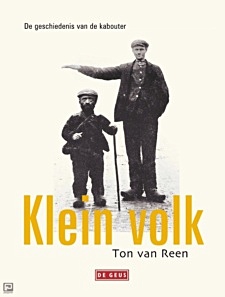 De rk Kerk heeft altijd de mensen die haar niet goed gezind waren, of van wie ze niet wilden dat ze katholiek werden, in verband gebracht met de duivel, zoals joden, roma en sinti, vrouwen die van hekserij werden beschuldigd, enzovoort.
De rk Kerk heeft altijd de mensen die haar niet goed gezind waren, of van wie ze niet wilden dat ze katholiek werden, in verband gebracht met de duivel, zoals joden, roma en sinti, vrouwen die van hekserij werden beschuldigd, enzovoort.
De duivel zou een geest zijn die zelf niet kon handelen , maar handlangers op aarde nodig had om zijn kwalijke werken uit te voeren, zoals misoogsten, uitbraken van pest en andere plagen, veeziektes , die tot hongersnoden hebben geleid, kinderroof, en zo meer.
Meer dan tien eeuwen lang heeft de kerk de mensen angst aangepraat voor alles wat anders was in de ogen van priesters en voor iedereen die anders dacht of een ander geloof aanhing.
Duizenden mensen, alleen al in het huidige Limburg, waren het slachtoffer van deze vervolgingen door een organisatie die zich boven alles verheven voelde en beschikte over leven en dood.
In de hele wereld werden er miljoenen mensen geslachtofferd en vaak na gruwelijke martelingen vermoord door een organisatie die zegt liefde te prediken maar haat heeft gezaaid en mensen tegen elkaar heeft opgezet.
Aanstaande woensdag, 7 november 2018, lezing van schrijver Ton van Reen in de jaarlijkse lezingencyclus van het Dr. Winand Roukens Fonds, aan de Universiteit van Maastricht.
De lezing vindt plaats in de Karl Dittrichzaal van de Universiteit te Maastricht, in het voormalige Bonnefantenklooster, Bonnefantenstraat 2 te Maastricht. De aanvang is om 16.00 uur. Graag iets eerder aanwezig. Einde om 18.00 uur. Iedereen is welkom.
# lezingen
Ton van Reen
fleursdumal.nl magazine
More in: - Book Lovers, - Book Stories, Archive Q-R, Art & Literature News, Literary Events, Reen, Ton van, Reen, Ton van, The Art of Reading, Ton van Reen
Dusk
Norman Gortsby sat on a bench in the Park, with his back to a strip of bush-planted sward, fenced by the park railings, and the Row fronting him across a wide stretch of carriage drive. Hyde Park Corner, with its rattle and hoot of traffic, lay immediately to his right. It was some thirty minutes past six on an early March evening, and dusk had fallen heavily over the scene, dusk mitigated by some faint moonlight and many street lamps. There was a wide emptiness over road and sidewalk, and yet there were many unconsidered figures moving silently through the half-light, or dotted unobtrusively on bench and chair, scarcely to be distinguished from the shadowed gloom in which they sat.
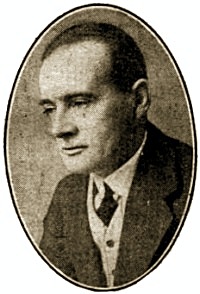 The scene pleased Gortsby and harmonised with his present mood. Dusk, to his mind, was the hour of the defeated. Men and women, who had fought and lost, who hid their fallen fortunes and dead hopes as far as possible from the scrutiny of the curious, came forth in this hour of gloaming, when their shabby clothes and bowed shoulders and unhappy eyes might pass unnoticed, or, at any rate, unrecognised.
The scene pleased Gortsby and harmonised with his present mood. Dusk, to his mind, was the hour of the defeated. Men and women, who had fought and lost, who hid their fallen fortunes and dead hopes as far as possible from the scrutiny of the curious, came forth in this hour of gloaming, when their shabby clothes and bowed shoulders and unhappy eyes might pass unnoticed, or, at any rate, unrecognised.
A king that is conquered must see strange looks, So bitter a thing is the heart of man.
The wanderers in the dusk did not choose to have strange looks fasten on them, therefore they came out in this bat-fashion, taking their pleasure sadly in a pleasure-ground that had emptied of its rightful occupants. Beyond the sheltering screen of bushes and palings came a realm of brilliant lights and noisy, rushing traffic. A blazing, many-tiered stretch of windows shone through the dusk and almost dispersed it, marking the haunts of those other people, who held their own in life’s struggle, or at any rate had not had to admit failure. So Gortsby’s imagination pictured things as he sat on his bench in the almost deserted walk. He was in the mood to count himself among the defeated. Money troubles did not press on him; had he so wished he could have strolled into the thoroughfares of light and noise, and taken his place among the jostling ranks of those who enjoyed prosperity or struggled for it. He had failed in a more subtle ambition, and for the moment he was heartsore and disillusionised, and not disinclined to take a certain cynical pleasure in observing and labelling his fellow wanderers as they went their ways in the dark stretches between the lamp-lights.
On the bench by his side sat an elderly gentleman with a drooping air of defiance that was probably the remaining vestige of self-respect in an individual who had ceased to defy successfully anybody or anything. His clothes could scarcely be called shabby, at least they passed muster in the half-light, but one’s imagination could not have pictured the wearer embarking on the purchase of a half-crown box of chocolates or laying out ninepence on a carnation buttonhole. He belonged unmistakably to that forlorn orchestra to whose piping no one dances; he was one of the world’s lamenters who induce no responsive weeping. As he rose to go Gortsby imagined him returning to a home circle where he was snubbed and of no account, or to some bleak lodging where his ability to pay a weekly bill was the beginning and end of the interest he inspired. His retreating figure vanished slowly into the shadows, and his place on the bench was taken almost immediately by a young man, fairly well dressed but scarcely more cheerful of mien than his predecessor. As if to emphasise the fact that the world went badly with him the new-corner unburdened himself of an angry and very audible expletive as he flung himself into the seat.
“You don’t seem in a very good temper,” said Gortsby, judging that he was expected to take due notice of the demonstration.
The young man turned to him with a look of disarming frankness which put him instantly on his guard.
“You wouldn’t be in a good temper if you were in the fix I’m in,” he said; “I’ve done the silliest thing I’ve ever done in my life.”
“Yes?” said Gortsby dispassionately.
“Came up this afternoon, meaning to stay at the Patagonian Hotel in Berkshire Square,” continued the young man; “when I got there I found it had been pulled down some weeks ago and a cinema theatre run up on the site. The taxi driver recommended me to another hotel some way off and I went there. I just sent a letter to my people, giving them the address, and then I went out to buy some soap — I’d forgotten to pack any and I hate using hotel soap. Then I strolled about a bit, had a drink at a bar and looked at the shops, and when I came to turn my steps back to the hotel I suddenly realised that I didn’t remember its name or even what street it was in. There’s a nice predicament for a fellow who hasn’t any friends or connections in London! Of course I can wire to my people for the address, but they won’t have got my letter till tomorrow; meantime I’m without any money, came out with about a shilling on me, which went in buying the soap and getting the drink, and here I am, wandering about with twopence in my pocket and nowhere to go for the night.”
There was an eloquent pause after the story had been told. “I suppose you think I’ve spun you rather an impossible yarn,” said the young man presently, with a suggestion of resentment in his voice.
“Not at all impossible,” said Gortsby judicially; “I remember doing exactly the same thing once in a foreign capital, and on that occasion there were two of us, which made it more remarkable. Luckily we remembered that the hotel was on a sort of canal, and when we struck the canal we were able to find our way back to the hotel.”
The youth brightened at the reminiscence. “In a foreign city I wouldn’t mind so much,” he said; “one could go to one’s Consul and get the requisite help from him. Here in one’s own land one is far more derelict if one gets into a fix. Unless I can find some decent chap to swallow my story and lend me some money I seem likely to spend the night on the Embankment. I’m glad, anyhow, that you don’t think the story outrageously improbable.”
He threw a good deal of warmth into the last remark, as though perhaps to indicate his hope that Gortsby did not fall far short of the requisite decency.
“Of course,” said Gortsby slowly, “the weak point of your story is that you can’t produce the soap.”
The young man sat forward hurriedly, felt rapidly in the pockets of his overcoat, and then jumped to his feet.
“I must have lost it,” he muttered angrily.
“To lose an hotel and a cake of soap on one afternoon suggests wilful carelessness,” said Gortsby, but the young man scarcely waited to hear the end of the remark. He flitted away down the path, his head held high, with an air of somewhat jaded jauntiness.
“It was a pity,” mused Gortsby; “the going out to get one’s own soap was the one convincing touch in the whole story, and yet it was just that little detail that brought him to grief. If he had had the brilliant forethought to provide himself with a cake of soap, wrapped and sealed with all the solicitude of the chemist’s counter, he would have been a genius in his particular line. In his particular line genius certainly consists of an infinite capacity for taking precautions.”
With that reflection Gortsby rose to go; as he did so an exclamation of concern escaped him. Lying on the ground by the side of the bench was a small oval packet, wrapped and sealed with the solicitude of a chemist’s counter. It could be nothing else but a cake of soap, and it had evidently fallen out of the youth’s overcoat pocket when he flung himself down on the seat. In another moment Gortsby was scudding along the dusk-shrouded path in anxious quest for a youthful figure in a light overcoat. He had nearly given up the search when he caught sight of the object of his pursuit standing irresolutely on the border of the carriage drive, evidently uncertain whether to strike across the Park or make for the bustling pavements of Knightsbridge. He turned round sharply with an air of defensive hostility when he found Gortsby hailing him.
“The important witness to the genuineness of your story has turned up,” said Gortsby, holding out the cake of soap; “it must have slid out of your overcoat pocket when you sat down on the seat. I saw it on the ground after you left. You must excuse my disbelief, but appearances were really rather against you, and now, as I appealed to the testimony of the soap I think I ought to abide by its verdict. If the loan of a sovereign is any good to you —”
The young man hastily removed all doubt on the subject by pocketing the coin.
“Here is my card with my address,” continued Gortsby; “any day this week will do for returning the money, and here is the soap — don’t lose it again it’s been a good friend to you.”
“Lucky thing your finding it,” said the youth, and then, with a catch in his voice, he blurted out a word or two of thanks and fled headlong in the direction of Knightsbridge.
“Poor boy, he as nearly as possible broke down,” said Gortsby to himself. “I don’t wonder either; the relief from his quandary must have been acute. It’s a lesson to me not to be too clever in judging by circumstances.”
As Gortsby retraced his steps past the seat where the little drama had taken place he saw an elderly gentleman poking and peering beneath it and on all sides of it, and recognised his earlier fellow occupant.
“Have you lost anything, sir?” he asked.
“Yes, sir, a cake of soap.”
Dusk
From ‘Beasts and Super-Beasts’
by Saki (H. H. Munro)
(1870 – 1916)
fleursdumal.nl magazine
More in: Archive S-T, Saki, Saki, The Art of Reading
Toen grootvader Bernhard na zijn pensionering het baantje van doodgraver had aanvaard, was grootvader Rudolf koster geworden.
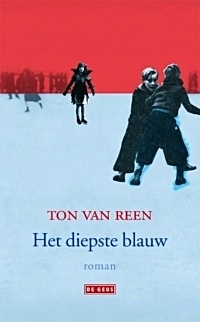 Zo doet hij ook wat voor de kerk. Omdat de een binnen werkt en de ander buiten, hoeven ze elkaar nooit te treffen, terwijl ze toch dezelfde Heer dienen.
Zo doet hij ook wat voor de kerk. Omdat de een binnen werkt en de ander buiten, hoeven ze elkaar nooit te treffen, terwijl ze toch dezelfde Heer dienen.
Als grootvader Mels ziet aankomen, gaat hij op de rand van het gat zitten, om even uit te blazen. Mels springt in het gat en graaft verder.
`Wie is er dood?’ vraagt Mels, terwijl hij de kluiten over de rand werpt.
`We krijgen een man die in zijn jeugd naar Curaçao is vertrokken en die hier nooit meer terug is geweest. Dat gebeurt steeds vaker. Laatst was er een vrouw die na de oorlog is weggevlucht.’
`Was ze bang?’
`Ze zou met Duitsers hebben gelopen. Haar fout was dat ze altijd aardig was geweest tegen iedereen, ook tegen de Duitsers. Daarom noemden ze haar een moffenhoer. Ik begrijp niet dat ze hier wil rusten, tussen de mensen die haar kaal hebben geschoren.’
`Misschien heeft ze hen vergeven.’
`Dat moet het zijn, jongen. Mensen moeten niet blijven leven met wraakgevoelens.’
`Kent u die man uit Curaçao?’
`Een merkwaardig iemand. Hij is door toeval als militair op Curaçao terechtgekomen en is daar nooit meer weggegaan, maar hij heeft in zijn testament laten zetten dat hij hier begraven wil liggen. Liever dood thuis dan nooit thuis. De wensen van overledenen moeten worden gerespecteerd.’
`Denkt u wel eens over doodgaan?’
`Waarom zou ik?’
`Omdat u oud bent.’
`Mijn beste jaren komen nog.’
`Grootvader Rudolf zegt dat de doden wachten op de verrijzenis.’
`Zo’n bovenmeester weet dat het beste’, lacht grootvader. `Sommigen liggen hier al zo lang dat er niets meer van hen over is. Als de engelen het Laatste Oordeel aankondigen, zal het voor velen knap lastig worden om uit het graf te verrijzen. Veel doden liggen boven elkaar begraven. Dan komt er iemand met de armen van de een en met de benen van een ander te voorschijn.’
`Grootvader, u spot met de doden. U mag ze de hoop niet afnemen.’
`Ik denk dat we het niet zo precies moeten nemen. Het lichaam dat we hier achterlaten, zal hier heus wel blijven. In welke gedaante wil je verrijzen? Als je oud was, wil je dan terugkomen als een jongeman? Ik geloof niet in die verrijzenisideeën. In de hemel is geen plaats voor de afgedragen pakken die onze lijven zijn. Voor de zielen is weinig plaats nodig. Alle zielen van de wereld kunnen in mijn handpalm.’
`Misschien is de hemel op aarde.’
`Precies. De bijbel bestaat uit plaatjes en praatjes die de mensen moeten kunnen begrijpen. Maar God houdt zich niet met het gekronkel van ons aardwormen bezig. Hij heeft wel wat anders te doen. Kijk vanavond naar de Melkweg. Dat heb ik geleerd op zee, van me af kijken. Beseffen dat alles eindeloos is. Ook God. Het enige wat ons past is afwachten wat God met ons wil.’
Grootvader neemt de schop over en graaft fluitend verder. Zijn twijfel over de eindigheid doet hem niet twijfelen over het nut van de dag van vandaag en over het nut van mooie graven.
Mels veegt het zand van zijn kleren.
`Wat zijn hoeren?’
`Hoe kom je daarbij?’
`Zojuist had u het over een moffenhoer.’
`Hoeren zijn vrouwen die de liefde bedrijven voor geld.’
`En die meisjes in de havens, vroeger?’
`Niet alle vrouwen die van de liefde leven, zijn hoeren. Zij waren de plaatsvervangsters van onze eigen meisjes en moeders. Troostmeisjes.’
`Zijn hier ook hoeren?’
`Nee, hier weten de mensen te veel van elkaar.’
`Ik heb Thija’s borsten gestreeld.’
`Heb je daar spijt van?’
`Nee.’
`Gelukkig maar. Strelen hoort bij de liefde. Toen ik zo oud was als jij droomde ik ook van meisjes. Ik moet je eerlijk bekennen, ik heb mijn meisje ook over haar borsten gestreeld, ook al werd me verteld dat het een doodzonde was. Ik ging liever naar de hel dan het te laten. Meisjes zijn er om gestreeld te worden. Ze hebben een zachte huid, dat is de natuur. Zonder strelen komt er geen nieuw leven. Paarden in de wei aaien elkaar ook. Denk jij dat die ooit hebben gehoord over doodzonde?’
Ton van Reen: Het diepste blauw (077)
wordt vervolgd
fleursdumal.nl magazine
More in: - Book News, - Het diepste blauw, Archive Q-R, Reen, Ton van
Auteur de la Série Noire, Hervé Prudon est mort en 2017 d’un cancer annoncé. Les deux derniers mois de sa vie, il les a consacrés à écrire des poèmes qui témoignent avec lucidité de son dernier combat : revendication de la solitude, détachement, conscience de la mort qui vient, souci de celle qui reste seule. Ils dessinent au-delà de la mort la personnalité d’un homme radical, porteur d’une douleur existentielle qu’il cherchait à conjurer.
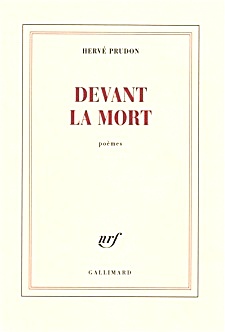 Écrits dans l’urgence, ces textes brefs et nerveux acquièrent un supplément de vigueur, de force et d’acuité. En dépit des circonstances, des traits d’humour viennent tempérer la sèche gravité du propos, loin de tout cynisme, de tout pathos. Ce court testament est à la fois une leçon de stoïcisme et un morceau de tendresse humaine à vif.
Écrits dans l’urgence, ces textes brefs et nerveux acquièrent un supplément de vigueur, de force et d’acuité. En dépit des circonstances, des traits d’humour viennent tempérer la sèche gravité du propos, loin de tout cynisme, de tout pathos. Ce court testament est à la fois une leçon de stoïcisme et un morceau de tendresse humaine à vif.
«Atteint d’un cancer diagnostiqué en août 2017, Hervé Prudon se savait condamné. Durant les deux derniers mois de sa vie, où il lui était devenu impossible d’écrire le roman qu’il avait ébauché, il remplira deux carnets de moleskine noirs d’une écriture tremblée. Une centaine de poèmes qui tous parlent de la mort à venir et frappent par leur lucidité et l’urgence dont ils sont un puissant témoignage. Ils dessinent en creux la personnalité d’un homme, porteur d’une douleur existentielle qu’il chercha toute sa vie à conjurer par la légèreté.» Sylvie Péju
Hervé Prudon, né le 27 décembre 1950 à Sannois (Seine-et-Oise) et mort le 15 octobre 2017 à Paris, est un écrivain, journaliste et scénariste français, spécialisé dans le roman policier et la littérature d’enfance et de jeunesse. Hervé Prudon laisse derrière lui une vingtaine de romans et des poèmes.
j’étais tremblé trempé de mon septembre
j’ânonnais dans ma tête en scaphandre
un dictionnaire de rimes à rien
mourir était mon programme court
écrire déjà était mort de fatigue et silence
c’était un premier pas vers ma longue absence
Hervé Prudon
Devant la mort
Littérature française – Poésie
ISBN-10 2072819849
Gencode : 9782072819841
Code distributeur : G02336
Collection Blanche, Gallimard
Parution : 11-10-2018
Langue : Français
128 pages
140 x 205 mm
Prix 14,50€
# new poetry
Hervé Prudon
fleursdumal.nl magazine
More in: #Editors Choice Archiv, - Book News, - Bookstores, Archive O-P, Archive O-P, Art & Literature News, In Memoriam
In 1956 W. E. B. Du Bois was denied a passport to attend the Présence Africaine Congress of Black Writers and Artists in Paris.
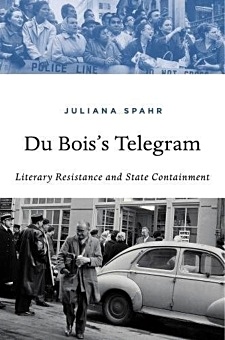 So he sent the assembled a telegram.
So he sent the assembled a telegram.
“Any Negro-American who travels abroad today must either not discuss race conditions in the United States or say the sort of thing which our State Department wishes the world to believe.”
Taking seriously Du Bois’s allegation, Juliana Spahr breathes new life into age-old questions as she explores how state interests have shaped U.S. literature. What is the relationship between literature and politics? Can writing be revolutionary? Can art be autonomous, or is escape from nations and nationalisms impossible?
Du Bois’s Telegram brings together a wide range of institutional forces implicated in literary production, paying special attention to three eras of writing that sought to defy political orthodoxies by contesting linguistic conventions: avant-garde modernism of the early twentieth century; social-movement writing of the 1960s and 1970s; and, in the twenty-first century, the profusion of English-language works incorporating languages other than English.
Spahr shows how these literatures attempted to assert their autonomy, only to be shut down by FBI harassment or coopted by CIA and State Department propagandists. Liberal state allies such as the Ford and Rockefeller foundations made writers complicit by funding multiculturalist works that celebrated diversity and assimilation while starving radical anti-imperial, anti-racist, anti-capitalist efforts.
Spahr does not deny the exhilarations of politically engaged art. But her study affirms a sobering reality: aesthetic resistance is easily domesticated.
Juliana Spahr is Professor of English at Mills College. She is the author of eight volumes of poetry, including The Winter the Wolf Came, Well Then There Now, and Response, winner of the National Poetry Series Award. She is also the editor, with Claudia Rankine, of American Women Poets in the 21st Century and received the O. B. Hardison Jr. Poetry Prize from the Folger Shakespeare Library.
Du Bois’s Telegram.
Literary Resistance and State Containment
by Juliana Spahr
Language: English
ISBN-10: 9780674986961
ISBN-13: 978-0674986961
Publisher: Harvard University Press
October 23, 2018
Hardcover
256 pages
$29.95
# new books
Literary Resistance
fleursdumal.nl magazine
More in: #Biography Archives, - Book Stories, Archive A-B, Art & Literature News, Literary Events, REPRESSION OF WRITERS, JOURNALISTS & ARTISTS
Dit najaar verscheen een volledig herziene leeseditie van de Verzamelde gedichten van Slauerhoff (1898-1938), aangevuld met meer dan 100 nieuwe gedichten.
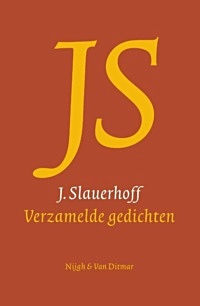 In 1941, vijf jaar na de dood van J. Slauerhoff, verschenen zijn Verzamelde gedichten, samengesteld door de jonge letterkundige Kees Lekkerkerker. Zijn Verzamelde gedichten beleefden bijna tachtig jaar lang, vrijwel onveranderd, herdruk op herdruk – ondanks het feit dat er inmiddels flink wat onbekende gedichten waren opgedoken.
In 1941, vijf jaar na de dood van J. Slauerhoff, verschenen zijn Verzamelde gedichten, samengesteld door de jonge letterkundige Kees Lekkerkerker. Zijn Verzamelde gedichten beleefden bijna tachtig jaar lang, vrijwel onveranderd, herdruk op herdruk – ondanks het feit dat er inmiddels flink wat onbekende gedichten waren opgedoken.
In deze nieuwe editie van de Verzamelde gedichten is alle poëzie van Slauerhoff voor het eerst in de juiste volgorde samengebracht. Alle door hem gebundelde en verspreid gepubliceerde gedichten en alle later in de nalatenschap aangetroffen poëzie zijn aangevuld met circa honderd niet eerder in de Verzamelde gedichten opgenomen verzen, waaronder Slauerhoffs studenten poëzie, vertalingen, en gewraakte spotverzen. Uit Verzamelde gedichten blijkt wederom dat Slauerhoff de grootste dichter van zijn generatie was. (uitgever)
J. Slauerhoff Verzamelde gedichten
Auteur: J. Slauerhoff
Bezorgd door Hein Aalders en Menno Voskuil
Nijgh & Van Ditmar Uitg.
September 2018
1152 pagina’s
Hardcover
ISBN 9789038804002
€ 34,99
# new books
J. Slauerhoff Verzamelde gedichten
fleursdumal.nl magazine
More in: #Biography Archives, - Book News, - Bookstores, Archive S-T, Awards & Prizes, Slauerhoff, Jan
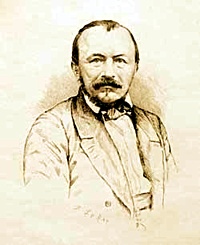
Notre-dame de Paris – Poéme
Notre-Dame est bien vieille : on la verra peut-être
Enterrer cependant Paris qu’elle a vu naître;
Mais, dans quelque mille ans, le Temps fera broncher
Comme un loup fait un bœuf, cette carcasse lourde,
Tordra ses nerfs de fer, et puis d’une dent sourde
Rongera tristement ses vieux os de rocher!
Bien des hommes, de tous les pays de la terre
Viendront, pour contempler cette ruine austère,
Rêveurs, et relisant le livre de Victor:
—Alors ils croiront voir la vieille basilique,
Toute ainsi qu’elle était, puissante et magnifique,
Se lever devant eux comme l’ombre d’un mort!
Gérard de Nerval
(1808 – 1855)
Notre-Dame de Paris – Poéme
fleursdumal.nl magazine
More in: Archive M-N, FDM in Paris, Nerval, Gérard de, Nerval, Gérard de
The final collection of poetry from Leonard Cohen’s body of work, introduced by son Adam Cohen. Plumbs the depths of humanity’s darkest questions with a sense of yearning. Illustrations and notes throughout
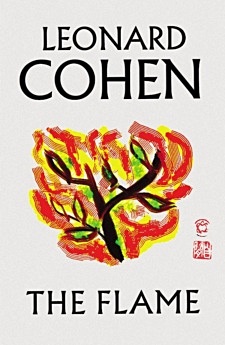 The Flame is a stunning collection of Leonard Cohen’s last poems, selected and ordered by the author in the final months of his life. Featuring lyrics, prose pieces and illustrations, the book also contains an extensive selection from Cohen’s notebooks, which he kept in poetic form throughout his life, and offers an unprecedentedly intimate look inside the life and mind of a singular artist and thinker.
The Flame is a stunning collection of Leonard Cohen’s last poems, selected and ordered by the author in the final months of his life. Featuring lyrics, prose pieces and illustrations, the book also contains an extensive selection from Cohen’s notebooks, which he kept in poetic form throughout his life, and offers an unprecedentedly intimate look inside the life and mind of a singular artist and thinker.
An enormously powerful final chapter in Cohen’s storied literary career, The Flame showcases the full range of Leonard Cohen’s lyricism, from the exquisitely transcendent to the darkly funny. By turns devastatingly sad and winningly strange, these are the works of a poet and lyricist who has plumbed the depths of our darkest questions and come up wanting, yearning for more.
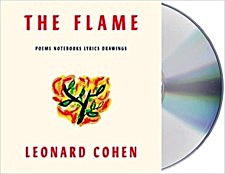 Leonard Cohen began his artistic career in 1956 with the publication of his first book of poetry, Let Us Compare Mythologies. He went on to publish 12 more books, including two celebrated novels and gained worldwide recognition as an iconic singer-songwriter.
Leonard Cohen began his artistic career in 1956 with the publication of his first book of poetry, Let Us Compare Mythologies. He went on to publish 12 more books, including two celebrated novels and gained worldwide recognition as an iconic singer-songwriter.
He released 14 studio albums, including three in the last years of his life when he also became one of the most acclaimed arena performing artists in the world.
Among his numerous honours, he is the recipient of the Grammy Lifetime Achievement Award 2010, the Prince of Asturias Award for Literature 2011, the inaugural New England PEN Award for Excellence in Lyrics 2012, the 2016 Juno Awards for Song of the Year and Album of the Year, and he has been inducted into the Canadian Songwriters Hall of Fame, the Rock and Roll Hall of Fame and the US Songwriters Hall of Fame. He died in November 2016.
The Flame
by Leonard Cohen (Author),
Adam Cohen (Introduction)
Language: English
Available as Hardback,
eBook, Downloadable audio
288 pages
Publisher: Canongate Books
Main edition 2 Oct. 2018
ISBN-10: 9781786893130
# new books
Leonard Cohen: The Flame
fleursdumal.nl magazine
More in: - Book News, - Bookstores, Archive C-D, Archive C-D, Art & Literature News, AUDIO, CINEMA, RADIO & TV, Leonard Cohen
Rüdiger Görner stellt in seiner Biografie den Gesamtkünstler Oskar Kokoschka in all seiner faszinierenden und widersprüchlichen Vielschichtigkeit dar.
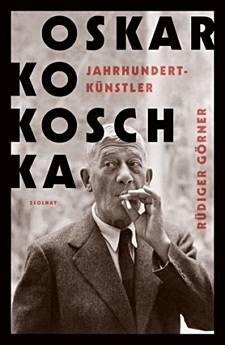 Dramen, Briefe und Essays zeugen auch von den bedeutenden schriftstellerischen Qualitäten dieses großen Malers. Die Musik war zentral für seine Arbeit. Und als Pädagoge begründete Kokoschka 1953 schließlich die “Schule des Sehens”. Oskar Kokoschka erreichte trotz schwerer Verletzungen im Ersten Weltkrieg ein biblisches Alter. Görner zeichnet Kokoschkas Weg vom Bürgerschreck und Hungerkünstler zum wohlhabenden Weltbürger und Jahrhundertkünstler ganz nah an dessen Werk nach, denn Kokoschkas Leben erzählt man, in dem man sein Werk erzählt – und umgekehrt.
Dramen, Briefe und Essays zeugen auch von den bedeutenden schriftstellerischen Qualitäten dieses großen Malers. Die Musik war zentral für seine Arbeit. Und als Pädagoge begründete Kokoschka 1953 schließlich die “Schule des Sehens”. Oskar Kokoschka erreichte trotz schwerer Verletzungen im Ersten Weltkrieg ein biblisches Alter. Görner zeichnet Kokoschkas Weg vom Bürgerschreck und Hungerkünstler zum wohlhabenden Weltbürger und Jahrhundertkünstler ganz nah an dessen Werk nach, denn Kokoschkas Leben erzählt man, in dem man sein Werk erzählt – und umgekehrt.
Rüdiger Görner, geboren 1957 in Rottweil, ist Professor für Neuere Deutsche und vergleichende Literatur an der Queen Mary University of London. Gründer des Ingeborg Bachmann Centre for Austrian Literature und Gründungsdirektor des Centre for Anglo-German Cultural Relations. Träger des Deutschen Sprachpreises, des Reimar Lüstpreises der Alexander von Humboldt-Stiftung und des Verdienstordens der Bundesrepublik Deutschland. Bei Zsolnay erschienen Rainer Maria Rilke. Im Herzwerk der Sprache (2004), Georg Trakl. Dichter im Jahrzehnt der Extreme (2014) und Oskar Kokoschka. Jahrhundertkünstler (2018).
Titel: Oskar Kokoschka
Autor: Rüdiger Görner
Jahrhundertkünstler
Buch
Gebundene Ausgabe
350 Seiten
24. September 2018
Verlag: Paul Zsolnay Verlag
Sprache: Deutsch
ISBN-10: 9783552059054
ISBN-13: 978-3552059054
€ 28,00
# new books
Die erste Biografie seit drei Jahrzehnten: Rüdiger Görner zeigt den großen Maler Oskar Kokoschka in all seiner Vielschichtigkeit
fleursdumal.nl magazine
More in: #Biography Archives, - Book News, - Bookstores, Archive K-L, Art & Literature News, FDM Art Gallery, Modernisme
Thank you for reading Fleurs du Mal - magazine for art & literature